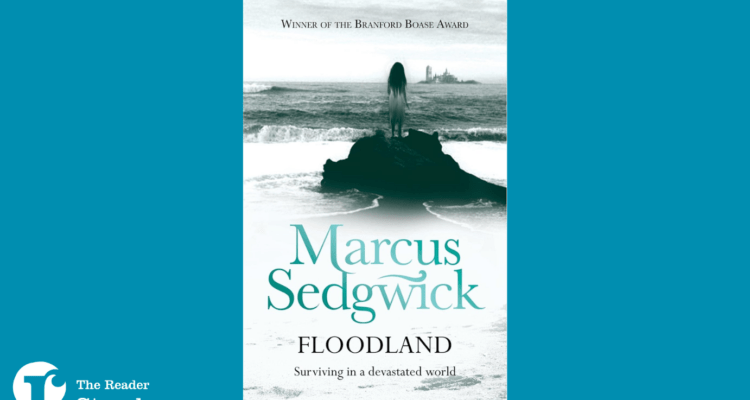Featured Poem: To A Poet A Thousand Years Hence by James Elroy Flecker
I have, in previous posts, made reference to my interest in/all consuming passion/immensely geeky love for the English language. It started way back when I was small, reading and being read to, and has only grown by even bigger proportions since I’ve studied the subject for five solid years; you’d think that might put me off, but quite the opposite. I am rabidly interested in pretty much anything to do with English and its origins, am always intrigued to hear about new – or old – phrases and constructions and will stand as a proud defender of it in the face of various, deeply disgruntled claims about its correct usage, many of which seem to miss the point entirely. Yes, this is a true love affair that will never fail to disappoint when others often unfortunately do.
That’s why my heart skipped a beat on hearing about the 'Evolving English' exhibition that has not long opened at The British Library. Having taken three years to plan, it is a veritable treasure trove for all fanatics of English, spanning the extensive history of the language in spectacular style by providing some of the oldest, and most fascinating artefacts to pore over. Yet it’s not all about the past, as deeply interesting as it is; the exhibition is as much about charting how the language is continuing to evolve due to a range of social and cultural influences and therefore showcases the part modern-day usage plays in adding to the rich tapestry that is the English language.
As well as encompassing all manner of aspects of English, from the first book and dictionary ever printed in English to texts dealing with the ‘rules and regulations’ of the language, to an exploration of the uses of slang, the exhibition also has quite a few literary and poetic gems to offer. There’s an array of Shakespeare’s plays in ‘quarto’ form and, very impressively, the only surviving manuscript of the epic Beowulf which is visibly singed around its edges due to it being dramatically saved from a fire in 1731. Perhaps most intriguing is the evidence of what is termed ‘emblematic poetry’ from as far back as 1867, when Charles C Bombaugh wrote a poem entitled ‘Essay To Miss Catherine Jay’. Given the ‘text speak’ that is so frequently used today (although, not all that common amongst my circle of friends and family), it’s not hard for us modern readers to decipher lines such as ‘I wrote 2 U B 4’ and ‘In X L N C U X L’ but rather astounding to consider that is was being used in the Victorian era. Something to consider when next frowning upon a seemingly lazy text message; could it be that the author was being entirely ironic and indulging some pre-technological word play? (Probably not...but at least it’ll give something to smile about, rather than get utterly frustrated.)
It did get me wondering ; if poets were so light years ahead of us mere mortals in the trend of substituting whole words for singular letters, who knows what else we haven’t yet discovered that they could be responsible – at least in part – for? And indeed what linguistic endeavours will occur in the future…the mind does truly boggle with the possibilities. In the absence of any language crystal ball that could assist, here’s a poem by James Elroy Flecker that will serve to pay homage to every poet, past, present and future, whether a radical innovator or not. It bridges the physical gap between writer and reader perfectly, that simple but undoubtedly powerful closing line ‘You will understand’ ringing out. Indeed, we do and we will.
To A Poet A Thousand Years Hence
I who am dead a thousand years,
And wrote this sweet archaic song,
Send you my words for messengers
The way I shall not pass along.
I care not if you bridge the seas,
Or ride secure the cruel sky,
Or build consummate palaces
Of metal or of masonry.
But have you wine and music still,
And statues and a bright-eyed love,
And foolish thoughts of good and ill,
And prayers to them who sit above?
How shall we conquer? Like a wind
That falls at eve our fancies blow,
And old Maeonides the blind
Said it three thousand years ago.
O friend unseen, unborn, unknown,
Student of our sweet English tongue,
Read out my words at night, alone:
I was a poet, I was young.
Since I can never see your face,
And never shake you by the hand,
I send my soul through time and space
To greet you. You will understand.
James Elroy Flecker (1884-1915)
Share
Related Articles

The Storybarn Selects… From The Reader Bookshelf
Our last deep dive into the 2023/24 Children and Young People's Reader Bookshelf is a review of Floodland by Marcus Sedgwick…

March’s Stories and Poems
March’s stories, extracts and poems have been chosen on the theme ‘Moving on’, which perhaps feels especially relevant as we…

February’s Stories and Poems
February’s selection of stories, extracts and poems have been chosen on the theme of ‘Making connections’. We spend so much…


